|
|
|
Editor's note
|
|
Activists are rallying around the world today under the banner #RiseforClimate, calling on officials to curb fossil fuel use and fight climate change. On U.S. college campuses, many students and faculty want their schools to divest from fossil fuel companies – but administrators are wary. As sustainability scholar Jennie Stephens explains, divestment debates raise hard questions for higher education leaders about their institutions’ social
roles.
Cystic fibrosis is a progressive, potentially deadly, inherited disease characterized by thick, sticky mucus, especially in the lungs. It is the most common genetic disease in Caucasians, affecting 30,000 in the U.S. But more than 10 million Americans are carriers – with one copy of the cystic fibrosis mutation. Now Phil Farrell and an international team of scientists have discovered the origin of the most common mutation and the mysterious
folks who may have spread it around.
On Saturday, Serena Williams will compete in the Women’s final of the U.S. Open. Throughout the tournament, she hasn’t been wearing her controversial “catsuit,” which, according to the president of the French Tennis Federation, won’t be permitted at next year’s French Open. To University of Nevada, Las Vegas fashion historian Deirdre Clemente, the hoopla over Williams’ catsuit brings to mind the old debate over whether women could wear shorts in
public.
|
Jennifer Weeks
Environment + Energy Editor
|

|
|
Top stories
|
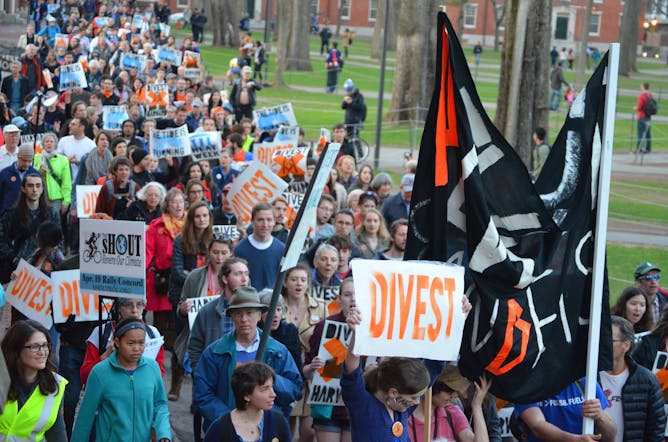
Divestment rally at Harvard University, April 17, 2015.
350.org
Jennie C. Stephens, Northeastern University
Many students and professors at US colleges and universities want their schools to divest holdings in fossil fuel companies, but it's a hard sell for school administrators.
|
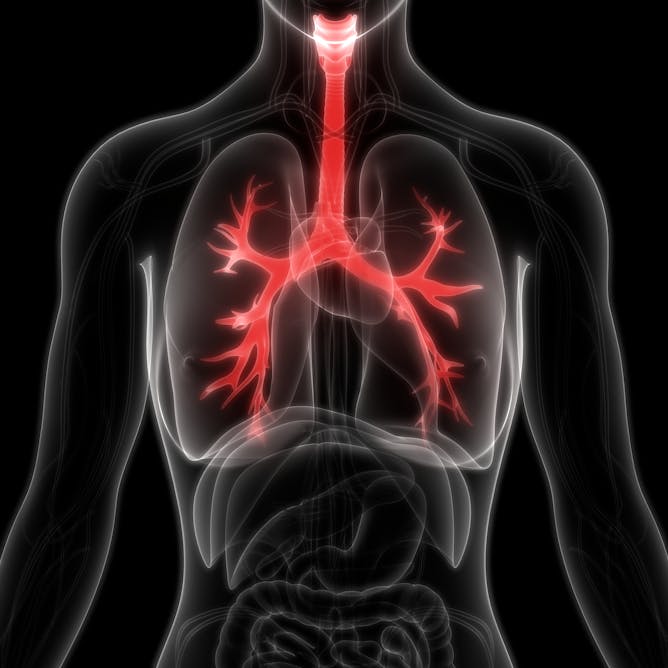
The airways inside the human lung.
Magic mine/Shutterstock.com
Philip Farrell, University of Wisconsin-Madison
Cystic fibrosis is the most common genetic disease among Caucasians. Now scientists believe they have discovered the origin of this often lethal genetic mutation and how it spread throughout Europe.
|

Serena Williams – wearing her controversial catsuit – returns a shot during the first round of the French Open in May 2018.
AP Photo/Michel Euler
Deirdre Clemente, University of Nevada, Las Vegas
On the front lines were female tennis players who refused to adhere to the club dress codes that banned them.
|
Politics + Society
|
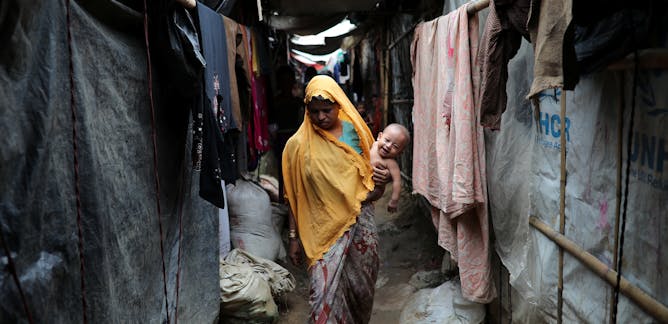
Max Pensky, Binghamton University, State University of New York; Nadia Rubaii, Binghamton University, State University of New York
The evidence in the report is compelling, but experts explain there are many barriers to global leaders taking action.
| |
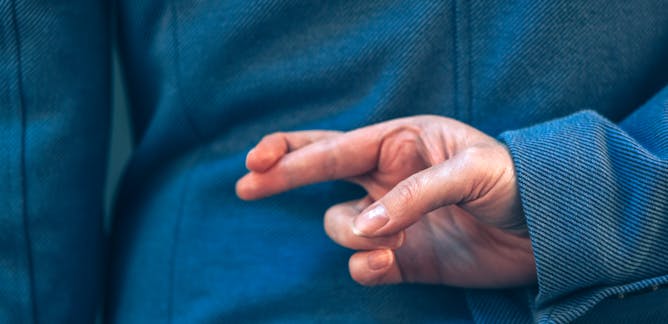
Gideon Cohn-Postar, Northwestern University
While Donald Trump's election may seem to US voters to present unprecedented questions of legitimacy, such questions were first asked more than a century ago, in an election that turned on bicycles.
|
|
|
Science + Technology
|
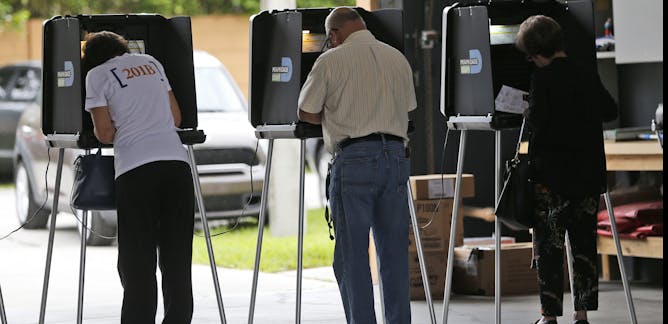
Douglas W. Jones, University of Iowa
Ensuring the integrity of democratic elections from hackers and electronic tampering, and boosting public confidence in democracy, isn't very difficult, nor expensive.
| |

Chip Colwell, University of Colorado Denver
It's a comforting falsehood that once an artifact joins a museum's collection, it's safe for eternity. Museums face many foes in the fight to preserve – a lack of funds might be the biggest.
|
|
|
Ethics + Religion
|
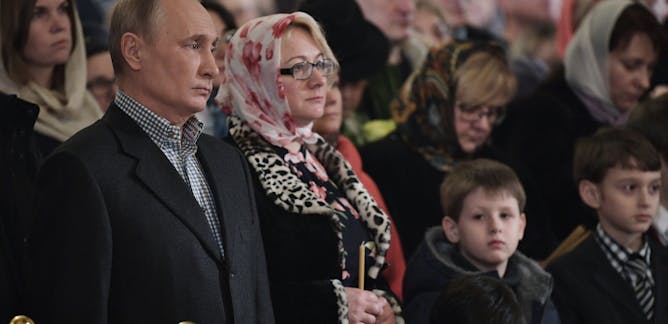
Melani McAlister, George Washington University
During the Cold War, American evangelicals smuggled Bibles and other Christian literature to the Soviet Union and other communist countries. They still see Russia as a partner on evangelical values.
| |

Kim Haines-Eitzen, Cornell University
Early Christians were open to marriage for priests. It wasn't until the 12th century that celibacy became mandatory in the Catholic Church.
|
|
|
Economy + Business
|

Anthony Frederick Lucas, University of Nevada, Las Vegas
A gaming industry expert explains how casinos' ability to hide the price of a slot spin ensures a reliable stream of revenue from even the savviest of gamblers.
| |
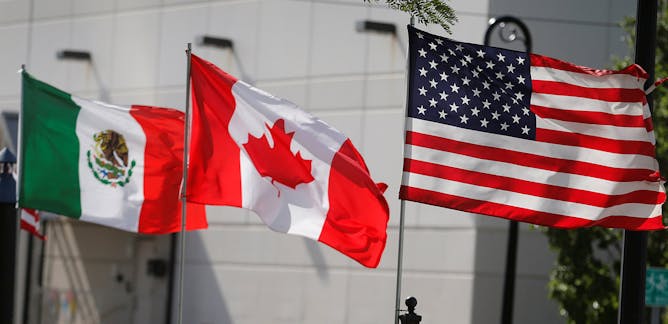
Christina Fattore, West Virginia University
A political scientist explains why corporate lobbyists and other interest groups will thwart Trump's efforts to strong-arm or ignore Canada.
|
|
|
Education
|

Ted Thornhill, Florida Gulf Coast University
New research by sociologist Ted Thornhill shows that black students who indicate they plan to fight for racial justice are more likely to be ignored by white admissions counselors.
| |

Christopher Redding, University of Florida
About 16 percent of all teachers change schools or leave teaching. Often, these changes occur in the middle of the school year, which causes significant setbacks in learning, researchers say.
|
|
|
Health + Medicine
|
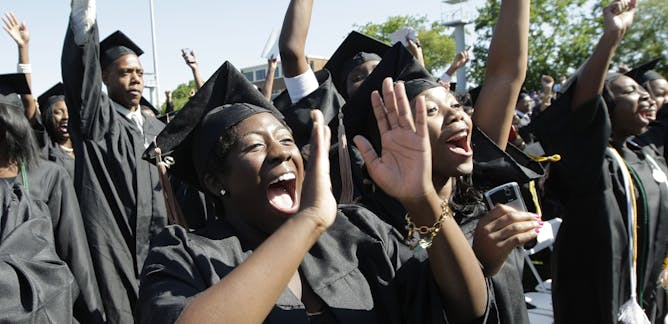
Shervin Assari, University of Michigan
Many in the US believe that all people can gain riches and education simply by working hard. Here's why that is not true for those have been denied rights and privileges for generations.
| |
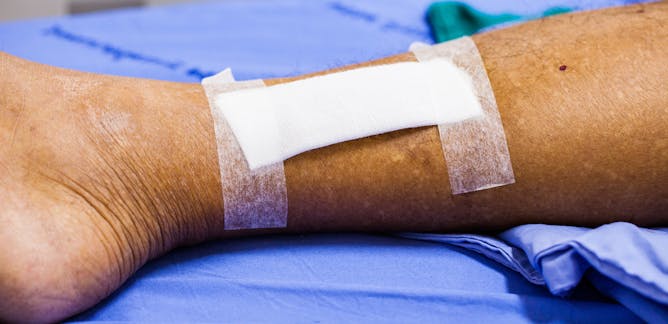
Juan Carlos Izpisua Belmonte, University of California San Diego
Dangerous open wounds known as cutaneous ulcers are common in people with diabetes and bedsores. Now scientists have figured out how to reprogram the cells inside these wounds to heal themselves.
|
|
|
Arts + Culture
|

Alan J. Kellner, Northwestern University
Many Americans seem to like seeing communist ideas in action, but have a visceral reaction to the word ‘communism.’ Might it be time to refresh an old ideology with a new set of terms?
| |
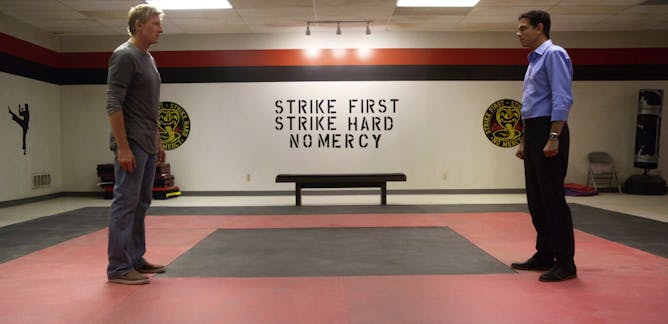
Craig Owen, St Mary's University, Twickenham; Alex Channon, University of Brighton; George Jennings, Cardiff Metropolitan University
With nostalgic flashbacks, epic training montages and most of the original cast, Cobra Kai is faithful to the Karate Kid film – all while delivering cutting-edge contemporary social commentary.
|
|
|
Environment + Energy
|

Matthew E. Baker, University of Maryland, Baltimore County
When a dam comes down this fall, a team of scientists will be there to track the environmental changes.
| |
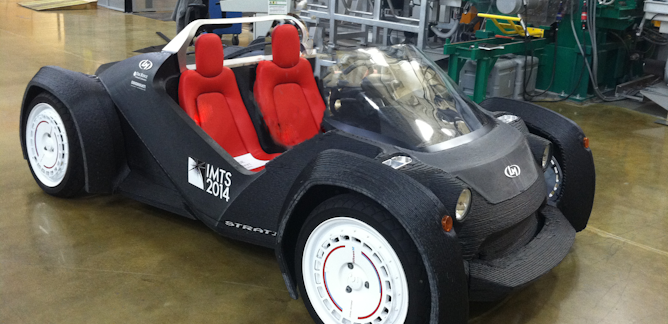
Reid Lifset, Yale University; Martin Baumers, University of Nottingham; Timothy Gutowski, Massachusetts Institute of Technology
Is 3D printing better for the environment than conventional manufacturing? The jury is still out.
|
|
|
| |
| |
| |
| |
| |
| |
|
|
|
|
|
|
|